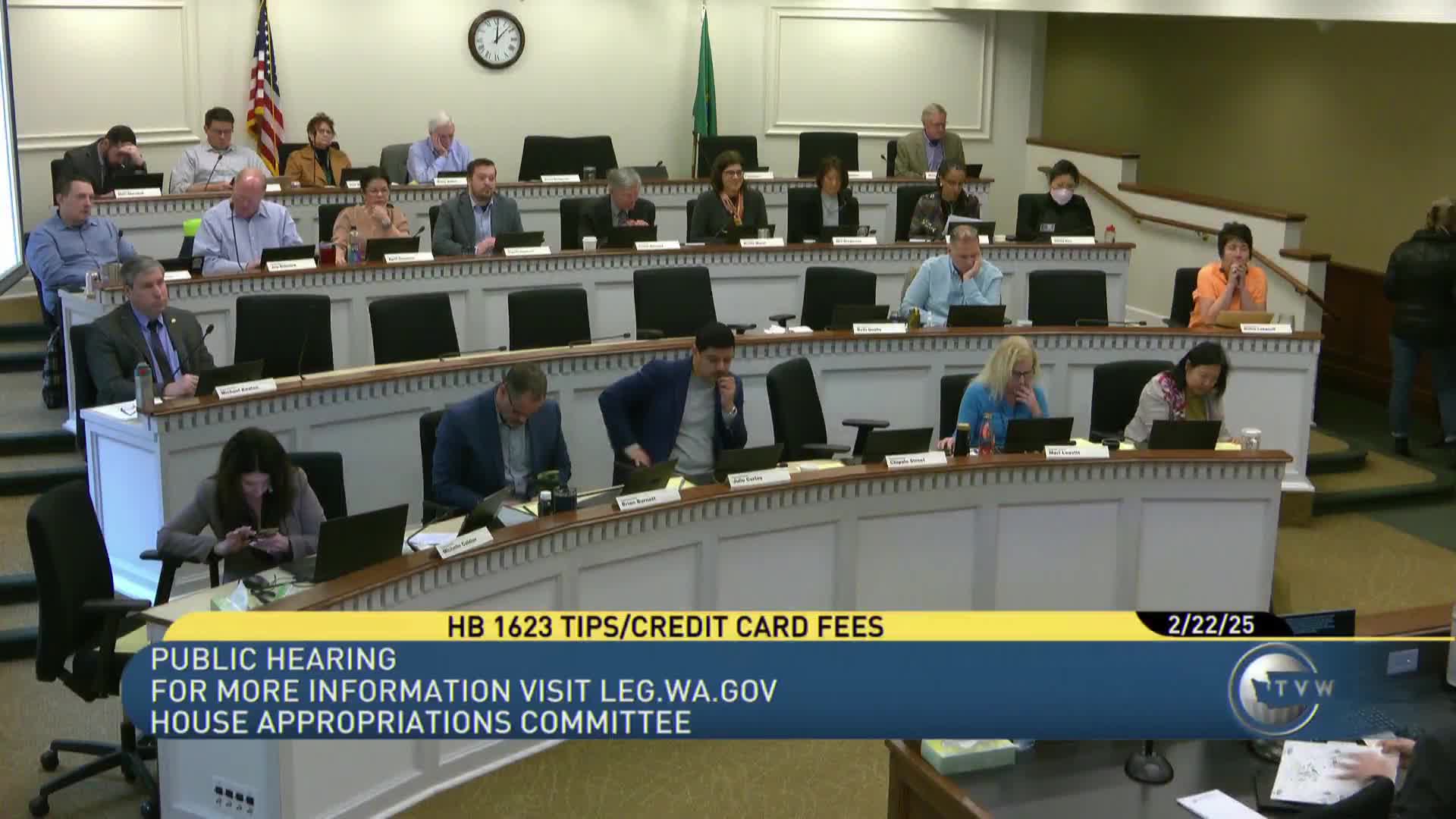Workers and employers split on bill banning credit‑card processing fees from tips
Get AI-powered insights, summaries, and transcripts
Subscribe
Summary
House Bill 16 23 would prohibit employers from deducting any portion of employee tips or gratuities to cover credit‑card processing fees. Restaurant and hospitality groups warned of transfer of costs to businesses and potential closures; labor and hospitality‑worker unions said the measure protects low‑paid tipped workers and urged passage.
House Bill 16 23 would bar employers from deducting any portion of an employee’s tips, gratuities or service charges to cover credit‑card processing fees. Staff briefed members that under current law employers may deduct a proportional share of processing costs from pooled tips, and the bill would make that practice illegal.
The Department of Labor & Industries (L&I) fiscal note estimated administrative costs tied to increased complaint volume, case processing and outreach: L&I projected additional staffing and IT changes and noted potential penalty receipts that are indeterminate. The Office of the Attorney General and Office of Administrative Hearings also forecast modest additional costs related to representation and hearings billed back to L&I under existing arrangements.
Business representatives, including the Washington Hospitality Association and the Washington Retail Association, opposed the bill at the hearing. They argued the legislation would shift processing costs from multinational card networks to small businesses that already operate on thin margins. Julia Gorton of the Hospitality Association said: “We cannot recoup anything above the fees that we have to pay” and warned that some small restaurants “will make the decision between staying open and having to close their doors.” Representatives urged federal or interchange‑fee regulation rather than shifting fees to employers.
Unions and worker advocates testified in favor. A representative of Unite Here told the committee that the deduction of card fees from workers’ tips is “essentially a tax on working people,” that tips are the property of employees and that many employers have sought contract language to take processing fees out of tipped income. Advocates urged passage and asked the committee to revisit assumptions in L&I’s fiscal note.
The committee did not take action on the bill at the hearing.
